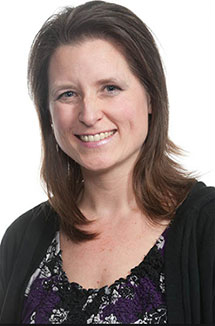Helping Brilliant Brains Fire on all Cylinders
Interview with IdeaConnection facilitator Bobbi Symes By Paul Arnold
Bobbi Symes is a highly skilled research manager who works for Simon Fraser University in Canada. Her job involves leading, coordinating and facilitating face-to-face and virtual communities in an academic setting. She brings a lot of experience to IdeaConnection, helping crack teams of brilliant brains to work cohesively and collaboratively to solve scientific and technical problems.
In this interview she talks about the skills of a facilitator, problem solving successes and how to get groups to work well in an online setting.
 Some groups have a great familiarity with an online virtual environment and enjoy that style of meeting space. However, there are still some challenges with individuals who prefer face-to-face meetings, being in a room, writing on whiteboards and garnering the attention. I think it’s getting better in the virtual environment with various programs and web apps that are really bringing groups closer together.
Some groups have a great familiarity with an online virtual environment and enjoy that style of meeting space. However, there are still some challenges with individuals who prefer face-to-face meetings, being in a room, writing on whiteboards and garnering the attention. I think it’s getting better in the virtual environment with various programs and web apps that are really bringing groups closer together.How do you do start getting groups of strangers to work well together and firing on all creative cylinders?
I always send an email welcoming everybody and try to get some email introductions forming, so before we start there’s a bit of familiarity there. I like to introduce myself and my background and highly encourage others to do the same by giving brief little biographical sketches. I love seeing pictures so I can put a face to the people I’m communicating with. I think this helps to draw everyone together.
When we first meet in an online forum I get everyone to introduce themselves and talk about their passions and what they feel they bring to the table. Some maybe very familiar with the content of the project we’re working on, whereas others maybe a little timid and unsure about what they’re bringing. But in having that conversation and encouraging them to speak and give us their ideas, I am able to pinpoint exactly what it is they bring to the table.
Another big part of my role is that little bit of a grey area between really allowing the juices to flow and creativity to emerge, and cutting in and stopping people from going off on a tangent.
That must be a difficult call to make sometimes because you just don’t know where the brilliant idea is going to come from. I assume you have to be careful not to nip creativity in the bud.
Exactly, and sometimes it’s that tangent that somebody else has gone off on that strikes the ‘aha moment’ in somebody else who’s in the group.
I also encourage my teams to not get stuck on one solution, but that it’s OK to have multiple solutions. We’re not here to choose the best one and submit that, but sometimes it’s nice to say that we’ve come up with three viable solutions.
How do you equalize participation so that shyer members are heard?
This is always a goal of mine and I remind my teams of this with every session we have. I always start off by giving everyone their 2-3 minutes to ensure all have their say. Then we go into the group discussions.
As a facilitator do you need to be familiar with the subject your groups are working on?
The plain and simple answer is absolutely not, you don’t need content expertise to be a really good facilitator. I have zero content expertise in most of the projects I work on, whether it’s dissolvable cement stacks, film coatings or life cycle analysis of manure.
I may only understand about 50%, but my role as a facilitator is about bringing the team together and working together as one. It’s about making sure that everyone has a sense of inclusiveness. It’s about making sure that I’m drawing out the expertise and having everyone thinking a little bit outside of the box.
Sometimes I find that if groups are talking above my head I ask them to put it into layman’s terms.
I imagine that’s helpful for other disciplines too. In a multidisciplinary environment the biologists will probably not know what the chemical engineer is talking about and vice versa. It encourages people to clearly explain the ideas buzzing around their head.
My master’s degree is an interdisciplinary masters and one of the methodologies of interdisciplinary studies is called ‘integration’ and it’s about finding the common ground and then focusing on that. It’s what brings out a truly integrated approach to working on these sorts of problems. So the biologists may come at it from their discipline and the chemist from theirs, but the more you talk about your issues and what it is you’re trying to achieve, the more you will find the common ground – and that’s where the solution lies.
How did it feel to win the award for the life cycle of manure project?
I have to say when it was submitted and accepted there was some cheering going on. It was a great group and I really respected all of the individuals who put a lot of time and effort and heart and soul into the project.
